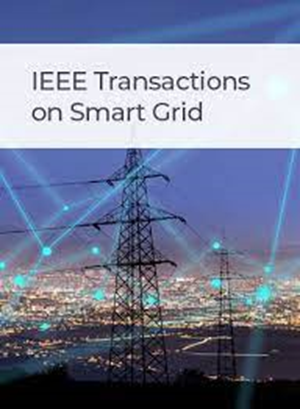Robust Coordinated Planning of Multi-Region Integrated Energy Systems With Categorized Demand Response
IF 8.6
1区 工程技术
Q1 ENGINEERING, ELECTRICAL & ELECTRONIC
引用次数: 0
Abstract
In this paper, categorized demand response (DR) programs are proposed to address the coordinated planning problem in multi-region integrated energy systems (MRIESs). The categorized DR programs comprise a discrete manufacturing production model for industrial areas, a real-time pricing-based DR program for commercial areas, and diverse operational tasks for various electrical appliances in residential areas. Subsequently, the detailed DR model is leveraged to minimize the operation cost and gas emissions in a renewable-integrated MRIES considering the uncertainties from wind and solar power. Then, a flexible adjustable robust optimization (FARO) approach is presented to deal with all uncertainty sources. The FARO approach aims to ensure the safe operation of the MRIES against any uncertainty while meeting predefined performance objectives. Furthermore, a bi-level solution algorithm is designed by combining the stochastic dichotomy method and the column-and-constraint generation (C&CG) algorithm to solve our coordinated planning model. Finally, case studies are conducted on a practical MRIES in Changsha, China. Experimental results indicate the effectiveness of the categorized DR programs in adjusting allocable resources to maximize holistic system profits. Besides, compared to the commonly used information-gap decision theory (IGDT) method, our FARO approach can maintain the optimality of the solution while reducing conservatism.多区域综合能源系统的稳健协调规划与分类需求响应
本文提出了分类需求响应(DR)方案,以解决多区域综合能源系统(MRIES)中的协调规划问题。分类需求响应方案包括工业区的离散制造业生产模型、商业区基于实时定价的需求响应方案以及住宅区各种电器的不同操作任务。随后,考虑到风能和太阳能发电的不确定性,利用详细的 DR 模型使可再生能源集成 MRIES 的运营成本和气体排放量最小化。然后,提出了一种灵活可调的鲁棒优化(FARO)方法来处理所有不确定性来源。FARO 方法旨在确保 MRIES 在满足预定性能目标的同时,在任何不确定情况下都能安全运行。此外,结合随机二分法和列与约束生成(C&CG)算法,设计了一种双级求解算法,以求解我们的协调规划模型。最后,对中国长沙的实际 MRIES 进行了案例研究。实验结果表明,分类 DR 方案在调整可分配资源以实现系统整体利益最大化方面非常有效。此外,与常用的信息差距决策理论(IGDT)方法相比,我们的 FARO 方法可以在减少保守性的同时保持解决方案的最优性。
本文章由计算机程序翻译,如有差异,请以英文原文为准。
求助全文
约1分钟内获得全文
求助全文
来源期刊

IEEE Transactions on Smart Grid
ENGINEERING, ELECTRICAL & ELECTRONIC-
CiteScore
22.10
自引率
9.40%
发文量
526
审稿时长
6 months
期刊介绍:
The IEEE Transactions on Smart Grid is a multidisciplinary journal that focuses on research and development in the field of smart grid technology. It covers various aspects of the smart grid, including energy networks, prosumers (consumers who also produce energy), electric transportation, distributed energy resources, and communications. The journal also addresses the integration of microgrids and active distribution networks with transmission systems. It publishes original research on smart grid theories and principles, including technologies and systems for demand response, Advance Metering Infrastructure, cyber-physical systems, multi-energy systems, transactive energy, data analytics, and electric vehicle integration. Additionally, the journal considers surveys of existing work on the smart grid that propose new perspectives on the history and future of intelligent and active grids.
 求助内容:
求助内容: 应助结果提醒方式:
应助结果提醒方式:


